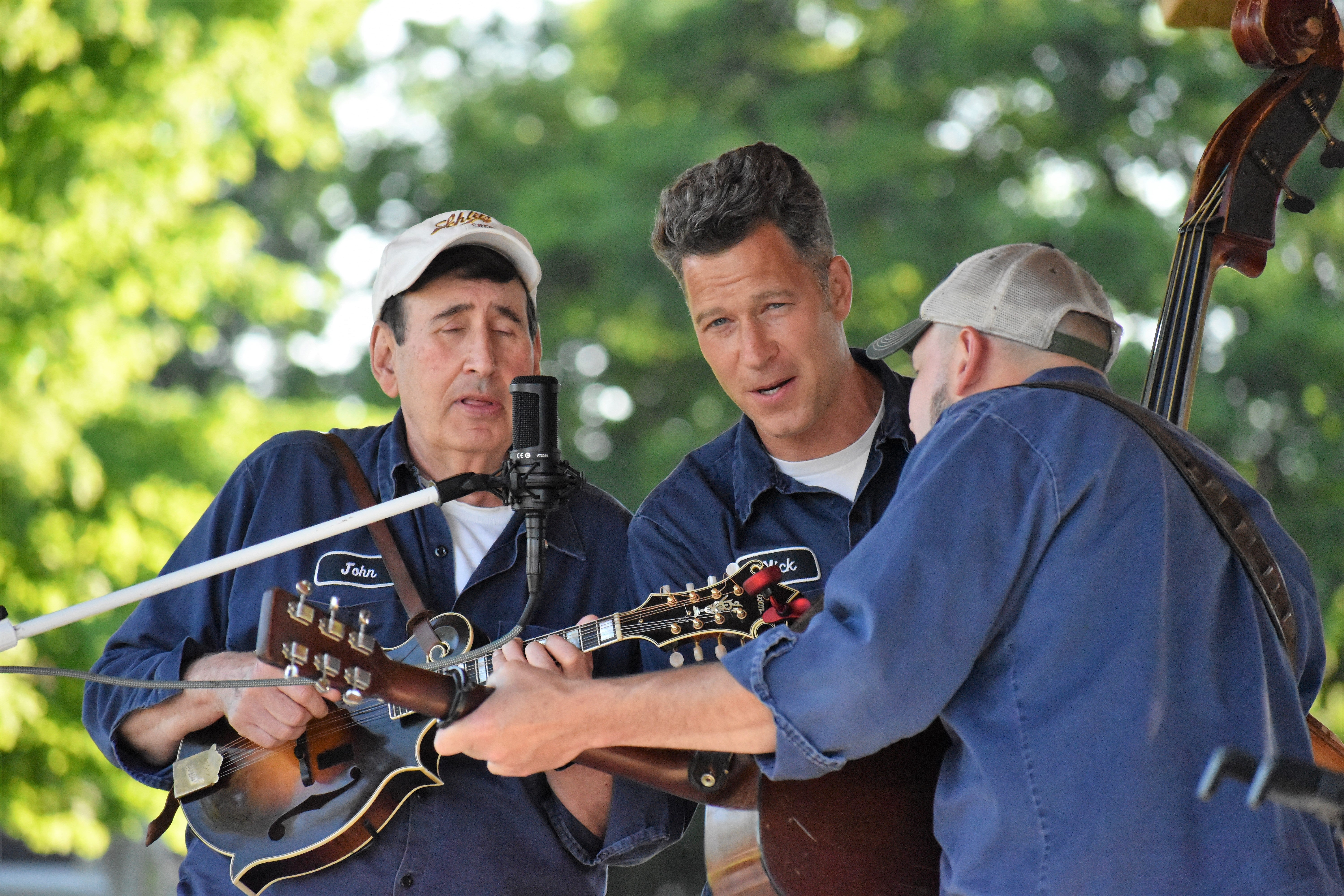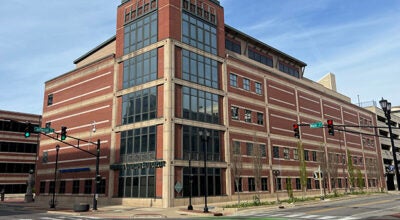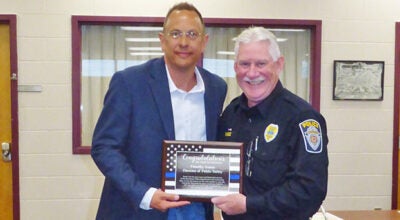Dowagiac joins state dialogue about seizing the Mich. Moment
Published 9:26 am Thursday, October 1, 2009
By JOHN EBY
Dowagiac Daily News
Dowagiac’s community conversation for Michigan’s Defining Moment to craft a common ground legislative agenda for after the watershed 2010 election turned Wednesday night into the “we need another Boston Tea Party” townhall meeting U.S. Rep. Fred Upton never held in August.
Seventeen people – 13 men and four women – took part at Elks Lodge 889 in the exercise which identified with their clickers economic development and diversification as the most urgent need.
A second round of voting prioritized accountability and bipartisanship leadership.
Another choice was “rebranding” Michigan and its water resources as the “North Coast” to compete with the West and East Coasts.
Participants, guided by the Kalamazoo community relations firm Lamb and Associates, which partners with the non-partisan Center for Michigan, came from five local service organizations – Dowagiac Rotary Club, the Elks, Civitan, Moose and Cass County Post 1855 of Veterans of Foreign Wars (VFW).
“They’re trying to provide potential legislators in 2010 with some cover to step across party lines,” said facilitator Brian Lamb, who grew up in Kalamazoo.
An icebreaker helps remind that despite all its travails, Michigan still ranks high on such quality of life measures as home ownership, recreational opportunity and philanthropy compared to other states.
Lions Club, Peninsular Lodge 10 of the Free and Accepted Masons (F&AM) and the Fraternal Order of Eagles were invited, but did not take part in the dialogue.
Participants discerned between Washington and Lansing legislators who don’t seem to hear their concerns because they are beholden to financial backers and special interests who who keep them entrenched in office and more accessible, accountable grassroots government.
The Michigan Legislature’s second failure in three years to balance the budget, shutting down Lansing state government, didn’t brighten the mood any and comes on top of a dismal local economy which lost three major employers, Contech, National Copper Products and ICG amid recession and the collapse of Michigan’s bread and butter, auto production.
Plus, Eric pointed out, a lot of local residents also worked for the recreational vehicle industry in Elkhart, Ind., which led the nation in unemployment.
“There’s nothing wrong with the community or the county that jobs wouldn’t solve. We do a lot with what we have,” Bruce said.
No argument from Charlie, who lost his job after 40 years at Contech, or Scott, an unemployed tool-and-die-maker for whom the state shutdown means now his wife is out of work, too, in this battered area bordering Indiana. Scott, who has been unemployed for a year, said, “The tool-and-die industry is not there anymore.”
For Charlie, nothing on a list of nine possibilities strikes him as a local success story.
Ken asks that a 10th line – “none of the above” – be added.
Charlie finally settles on lifelong learning, since Michigan Works! and “both junior colleges came out” to apprise them of their options.
“The shop closed for three hours so they could talk to us and answer our questions,” though “who wants to go to college 40 years out of high school with a kid who’s 18 years old?”
Marilu, who lived in the Upper Peninsula and Muskegon, gave Dowagiac a vote of confidence for “quality of place. Even though Dowagiac is hurting economically, I have never lived in a town where the people are as nice and caring as they are here. As soon as we moved here, we felt like we had reached home. Even though there are hard times here, the people are together if something happens to a family. The community pulls together. I think that’s one of the best things Dowagiac has.”
“We are fortunate in this town and in this county to have the government we have,” offered Ed. “They are doing an excellent job, even though we may not agree on a lot of points. We’re so fortunate to have people who are qualified and are doing a job a lot of other communities wish they had.”
Ditto for the city Police Department and Sheriff’s Office, added Audrey. “They are on top of the drug problem and are addressing the situations. One time I asked (Sheriff) Joe Underwood why we have so many meth houses in Cass County. He said we don’t have any more than anybody else, we just find them and they get into the paper. That’s how you get rid of them, like cockroaches – turn up the heat and turn on the light and they go someplace else.”
Walt, however, saw the drug problem as needing more attention in tandem with education.
One suggestion was for a “Department of Common Sense,” since so few of the games legislators play follow the logic their constituents live by in the real world.
“Everything from the government would have to go through it before it passed into law. We also need term limits because politicians are in there so long they end up owing favors and it gets to be, ‘I’ll vote for your oil thing if you vote for my corn.’ We just don’t win.”
“First we have to recognize there’s no simple solution to a complex problem,” Bruce said. “I think it all stems back to education. We have to get education to be the first priority, whether it be technical or advanced because we need both. Try to find an appliance repairman. Higher education is not for everybody, however, we must take careerism out of education and we must take careerism out of government. I’m an educator by trade, though most people don’t know me by that. I left when tenure came in. I don’t need the union if I do a good job. People get very lazy and complacent once they have a guaranteed job. There are a lot of people in education with 15 or 20 years in and they’re just riding the wave, and who’s suffering? You and I and the students.”
“It’s only careerism if the administration does not do their job,” pointed out a retired social worker.
“They might have good intentions first term, but then the buddy system keeps them from thinking about the people who elected them,” one of the men observed. “They think about their benefits.”
As for legislative careerism, Bruce has belonged to two of Michigan’s largest lobbying concerns. “An uneducated state or country is weak. The President’s doing nothing but campaigning (to bring the Olympics to Chicago). The only way we’re going to get bipartisanship is to take that money away from them. They shouldn’t have to answer to any group in Lansing. I’m not against lobbying – I’m against lobbyists. There should be associations to lobby, but no money. We’ve got to get that part out, then it’s not going to be bad for me to agree with a Democrat or for you to agree with a Republican.”
Nothing illustrates “careerism of our politicians” to Ed better than a letter he received from Sen. Carl Levin, D-Mich., about education 17 years ago. “They’re still talking about it now. I sent a copy of his original with a note on it: Deja vu! He sent me a generic letter. They do the same thing over and over and never accomplish anything. If they don’t do their jobs, don’t vote for them next time.”
“You didn’t contribute enough money to him” to get Levin’s attention, Ed was told.
Bruce advocates public campaign financing so a candidate’s ideas are measured on merit, not by how many dollars he can collect from well-heeled lobbyists. “Republicans and Democrats get equal amounts. Nothing from private individuals or corporations. That’s the clean way to do it, the only way to do it to level the playing field.”
“How do you do that?” Audrey pressed. “They’re not going to vote for that and they make the laws.”
A referendum, he replied. “They’re supposed to be listening to us.”
“And working for us,” added Eric, yet lawmakers vote themselves routine raises no matter the shape of the economy.
“Founding fathers didn’t want political parties,” Marilu said. “They said this is what would happen. Maybe we should look at abolishing political parties,” which is where the discussion on “economic development” ended.
In this third round of dialogue, panels try to delve a little deeper and suggest strategies and solutions for resolving vexing state problems.
Ed, retired from three small businesses, said, “That’s one of the areas we have to concentrate more on because they’re the ones that provide jobs. Let’s start being proactive instead of reactive.”
Jeff commented, “The auto industry has been key to Michigan and our financial base. Along with the auto industry we’ve lost small job shops and related businesses. We’ve had a large influx of immigrants into our state due to agriculture. Farmers reap the wealth and we as taxpayers are not getting any relief from the immigrants. The unemployment isn’t helping a bit because we don’t have anybody contributing to our economy in the form of taxes. If you don’t have a job you can’t buy a home or a car. You have a hard time buying groceries.”
Jeff continued, “If everybody got the same benefits our politicians get, we wouldn’t be talking about health care. They don’t have to buy supplements and they can go wherever they want.”
“We the people are responsible because we let them,” Marilu said. “We need another Boston Tea Party. If a legislator gets five letters on the same subject, he’s going to look at it seriously.”
Others agreed they have been lax in writing letters to lawmakers and holding their feet to the fire.
“Jobs, jobs, jobs are the most important thing right now,” Stuart said. “If they can figure out a way for electric cars, that’s another story, but the automotive industry is not what it once was – nor will it be.”
“We can have all the best-laid plans,” Jim said, “but I don’t know how you’re going to motivate the right people to get out there to vote and get everybody together to make it work. All of us here are probably on the Internet many times throughout the day, seeing really good ideas, but the mainstay is getting our heads all pointed in one direction and motivated to get the job done.”
“Michigan has a lot of talent,” Audrey said. “We’ve got to do something with it. We’ve been building things for years. We can do it, but we need some direction.”
Bob said, “Everybody here is involved in a non-profit organization involved in the community. Michigan needs to realize the fact that with all of the volunteer hours we do, we could do much more if we weren’t saddled with heavy property taxes. That money could go directly back into the community, probably more than two-fold. Property taxes for service organizations should be eliminated or greatly reduced.”
Several mentioned there needs to be more technical training for students disinterested in college-prep curriculums so they “could be trained as plumbers and electricians.”
“We’ve got to get jobs here first,” Don said. “We’ve got husbands and wives here in Dowagiac who are not working. They’re losing their homes and there’s no health care. We’ve got to find some way of attracting some type of employment to get the workers back in the job force. Then we’ll be able to pay for schools and whatever else we need.”
“Why did the auto industry die in Michigan?” Jeff asked. “We need to look at that. I believe one reason is that their employees asked far too much from the companies they worked for. When that happens, these companies were attracted to other countries where people would work for a lot less. Many of our industries moved to other countries because labor is so much cheaper than $35 to $40 an hour, plus full benefits. The next issue is when unemployment runs out, what’s going to happen then? They don’t have any jobs to go to. Is the federal government going to give us some more stimulus? One trillion dollars is $1 billion a day since Christ was born. Who’s going to start a business in Michigan when the labor force demands $20 and $30 an hour, plus full benefits? It’s not going to happen, so we continue with Burger King, McDonald’s and Pizza Hut.”
“It’s like importing milk from Mexico,” Eric added, “and blueberries from Argentina and China. We’re not on a level playing field with those countries. They can use chemicals we can’t and we can’t compete in the global economy until it’s leveled out. How can you haul milk out of Mexico cheaper than you can haul it out of Wisconsin or Michigan?”
Cash for Clunkers “gave us an education,” said Jim. “When you’re offering to buy vehicles and the majority of the top 10 that made money on them were foreign, not Ford and GMC.”
“I disagree,” Eric said. “I remember when (Lee) Iacocca was on TV for Chrysler and they came out with a minivan that saved their bacon. Iacocca was on television saying ‘buy American.’ I had a minivan and it had a Mitsubishi engine in it. I was thinking, ‘Why aren’t you buying American instead of foreign engines? Our American companies profiteered by going overseas. I think it’s their fault also. They’ve got to share the blame for giving away business to other countries by being short-sighted and greedy. My Honda motorcycle at one time had more American parts on it than a Harley.”






